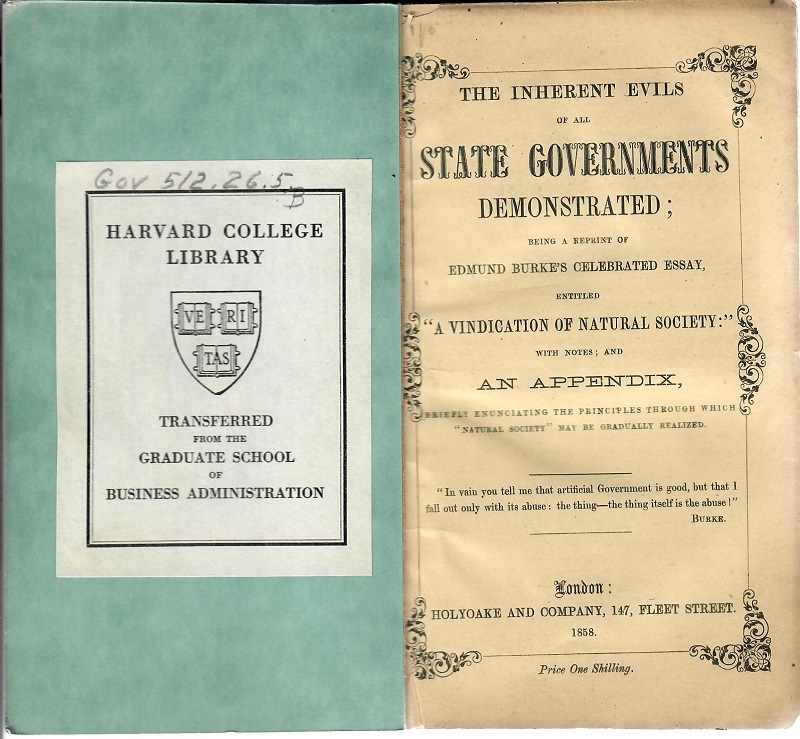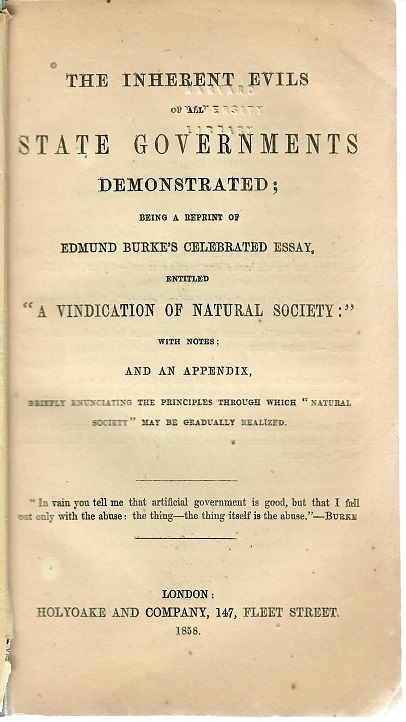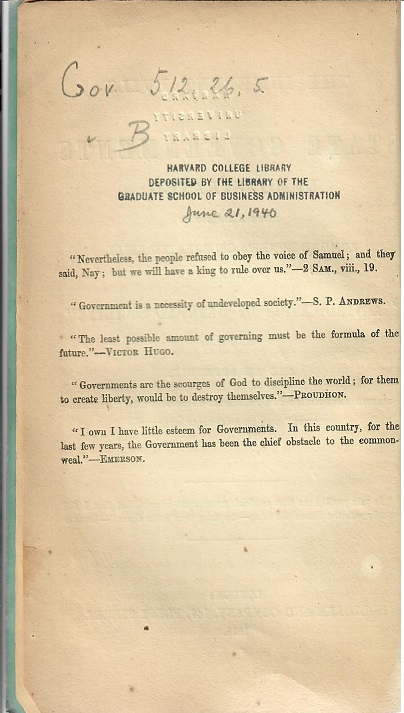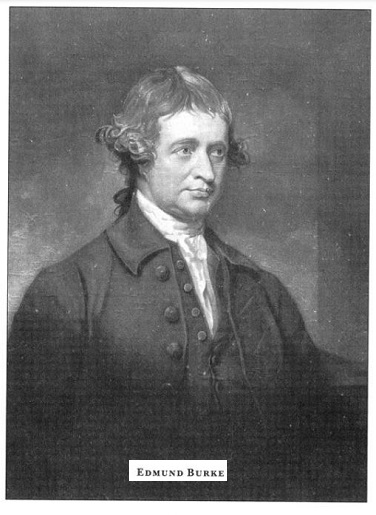A Vindication of Natural Society; or, a View of the Miseries and Evils Arising to Mankind
from Every Species of Artificial Society

in a letter to Lord ****



By Edmund Burke
Originally printed in 1796.
SHALL I venture to say, my Lord, that, in our late conversation, you were inclined to the party which you adopted rather by the feelings of your good nature, than by the conviction of your judgment? We laid open the foundations of Society; and you feared that the curiosity of this search might endanger the ruin of the whole fabric. You would readily have allowed my principle, but you dreaded the consequences; you thought, that having once entered upon these reasonings, we might be carried insensibly and irresistibly farther than at first we could either have imagined or wished.
But for my part, my Lord, I then thought, and am still of the same opinion, that error, and not truth of any kind is dangerous; that ill conclusion can only flow from false propositions; and that, to know whether any proposition be true or false, it is a preposterous method to examine it by its apparent consequences.
These were the reasons which induced me to go so far into that inquiry; and they are the reasons which direct me in all my inquiries. I had, indeed, often reflected on that subject before I could prevail on myself to communicate my reflections to anybody. They were generally melancholy enough; as those usually are which carry us beyond the mere surface of things, and which would undoubtedly make the lives of all thinking men extremely miserable, if the same philosophy which caused the grief did not, at the same time, administer comfort.
On considering political societies, their origin, their constitution, and their effects, I have sometimes been in a good deal more than doubt, whether the Creator did every really intend man for a state of happiness. He has mixed in his cup a number of natural evils, (in spite of the boasts of stoicism they are evils,) and every endeavor which the art and policy of mankind has used from the beginning of the world to this day, in order to alleviate or cure them, has only served to introduce new mischiefs, or to aggravate and inflame the old. Besides this, the mind of man itself is too active and restless a principle ever to settle on the true point of quiet. It discovers every day some craving want in a body, which really wants but little. It every day invents some new artificial rule to guide the nature which, if left to itself, were the best and surest guide. It finds out imaginary beings prescribing imaginary laws; and then it raises imaginary terrors to support a belief in the beings, and an obedience to the laws. Many things have been said, and very well, undoubtedly, on the subjection in which we should preserve our bodies to the government of our understanding; but enough has not been said upon the restraint which our bodily necessities out to lay on the extravagant sublimities and eccentric rovings of our minds. The body, or, as some love to call it, our inferior nature, is wiser in its own plain way, and attends its own business more directly, than the mind with all its boasted subtility.

Read on should you wish >>>

[pdf-embedder url=”https://beezone.com/wp-content/uploads/2022/06/The-Inherent-Evils-of-All-State-Governments.pdf” title=”The Inherent Evils of All State Governments”]
Point mouse on bottom left hand corner of PDF for ‘UP’ and ‘DOWN’ scrolling.